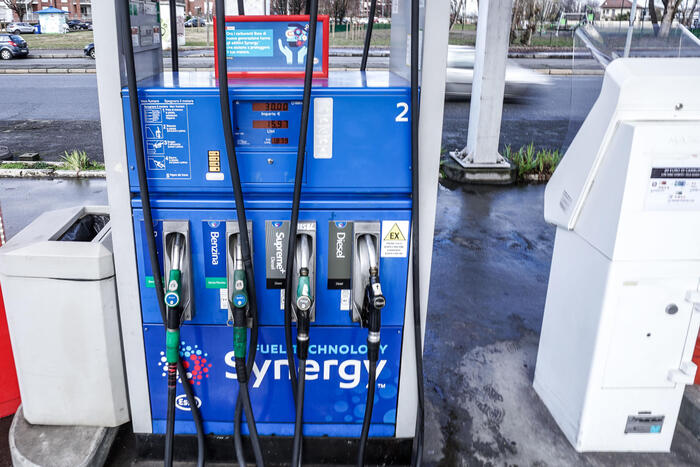Enlarge image
Petrol station in Munich: Prices are highest in south-east Germany
Photo: Lennart Preiss / dpa
The Bundeskartellamt has identified immense regional differences in fuel prices.
According to this, the Bavarians are currently by far the most expensive to fill up, while drivers in Berlin and Bremen and drivers of petrol engines in Stuttgart can save.
In the case of premium petrol of the E 5 variety, up to 27 cents per liter were between the cheapest and most expensive regions in Germany, and in the case of diesel it was up to 24 cents, the authority said.
In southern Bavaria in particular, a daily average of 2.19 to 2.20 euros per liter of E5 had to be paid last Monday.
The cheapest regions were parts of Berlin, Stuttgart and Bremen with values of 1.93 to 1.96 euros per liter.
The low prices in parts of Baden-Württemberg are particularly surprising: there is only a hundred kilometers between the very cheap Stuttgart and the nearest very expensive region in Bavaria.
Diesel was also the most expensive nationwide in large parts of Bavaria.
The region around and south of Munich was hit the hardest, with values just under EUR 2.28 per liter.
The cheapest was to refuel the diesel in Bremen and parts of Berlin with values above 2.04 euros.
Unlike premium petrol, Baden-Württemberg was comparatively expensive here.
Overall, fuel is again extremely expensive after the end of the tax rebate.
"The industry leads above all shortages and cost increases in the field," said Cartel Office President Andreas Mundt.
There are "certain circumstances" that have to be taken into account - such as the reduction in refinery capacity in the pandemic, the loss of imports from Russia, refinery failures, transport problems due to low water and the resurgence in demand.
"In our investigation of the refinery and wholesale level, we are investigating whether the price development and the still large gap to crude oil prices can be sufficiently explained by this," said Mundt.
The first results should be available in autumn.
Mundt was reluctant to comment on studies which, based on comparisons with French fuel prices, had recently shown that the tax cut had been passed on to a considerable extent.
"Such a country comparison provides helpful information, but cannot conclusively assess the different competitive situations in the two countries," he said.
The Cartel Office also makes its own calculations.
fdi/dpa








